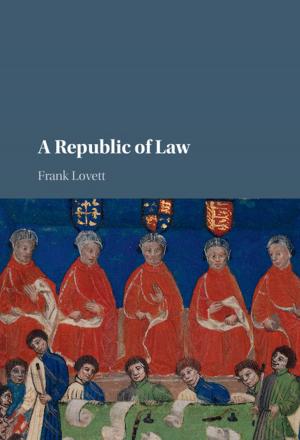Compromise
A Political and Philosophical History
Nonfiction, Social & Cultural Studies, Political Science, Politics, History & Theory, Social Science| Author: | Alin Fumurescu | ISBN: | 9781139610988 |
| Publisher: | Cambridge University Press | Publication: | February 11, 2013 |
| Imprint: | Cambridge University Press | Language: | English |
| Author: | Alin Fumurescu |
| ISBN: | 9781139610988 |
| Publisher: | Cambridge University Press |
| Publication: | February 11, 2013 |
| Imprint: | Cambridge University Press |
| Language: | English |
This book offers for the first time a conceptual history of compromise. Alin Fumurescu combines contextual historical analysis of daily parlance and a survey of the usage of the word from the end of the sixteenth century to the beginning of the eighteenth century in both French and English with an analysis of canonical texts in the history of political thought. This book fills a significant gap in the literature about compromise and demonstrates the connection between different understandings of compromise and corresponding differences in understandings of political representation. In addition, Fumurescu addresses two controversial contemporary debates about when compromise is beneficial and when it should be avoided at all costs. A better understanding of the genealogy of compromise offers new venues for rethinking basic assumptions regarding political representation and the relationship between individuals and politics.
This book offers for the first time a conceptual history of compromise. Alin Fumurescu combines contextual historical analysis of daily parlance and a survey of the usage of the word from the end of the sixteenth century to the beginning of the eighteenth century in both French and English with an analysis of canonical texts in the history of political thought. This book fills a significant gap in the literature about compromise and demonstrates the connection between different understandings of compromise and corresponding differences in understandings of political representation. In addition, Fumurescu addresses two controversial contemporary debates about when compromise is beneficial and when it should be avoided at all costs. A better understanding of the genealogy of compromise offers new venues for rethinking basic assumptions regarding political representation and the relationship between individuals and politics.















